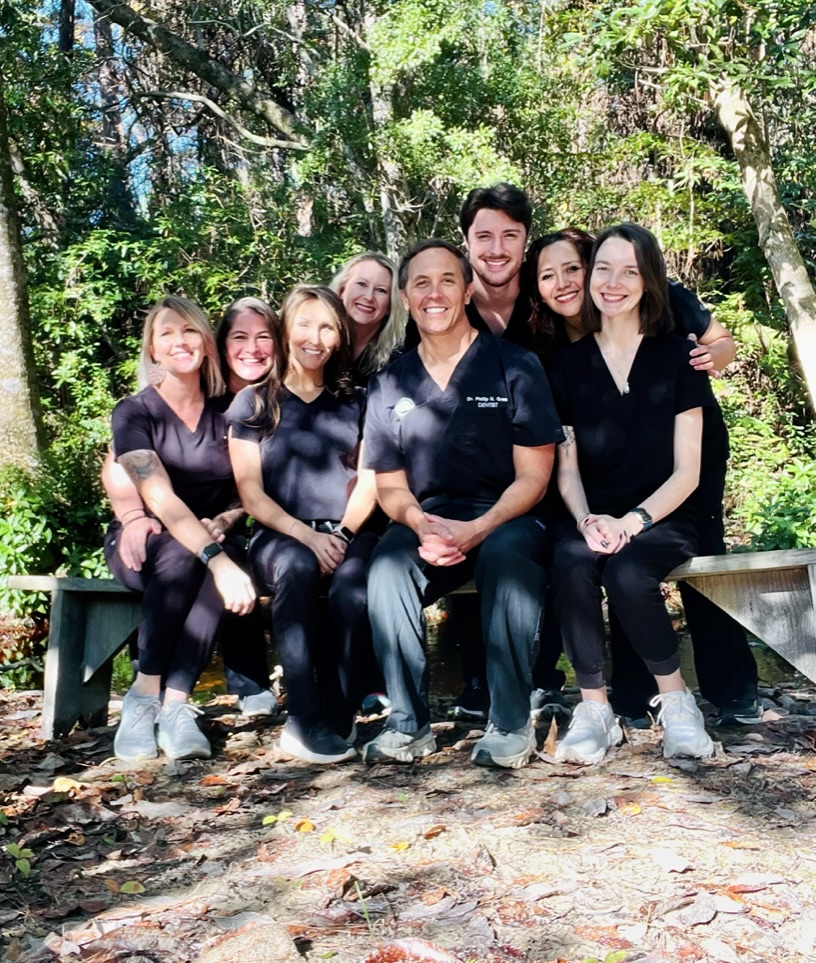How Does Sedation Dentistry Work During Procedures?
Sedation dentistry can be a game-changer for people who experience anxiety or fear when visiting the dentist. In this blog, we will break down how sedation dentistry works and what you can expect during dental procedures. Our goal is to provide you with a clear and engaging explanation that can make your next visit to the dentist a bit less daunting.
What is Sedation Dentistry?
Sedation dentistry involves using medication to help patients relax during dental procedures. It’s sometimes referred to as ‘sleep dentistry,’ although most patients are usually awake, except for those under general anesthesia.
The goal of sedation dentistry is to alleviate anxiety, making dental treatments more pleasant and less stressful for individuals who might otherwise avoid getting the care they need. It is particularly beneficial for patients with extreme dental phobia, a low pain threshold, or a strong gag reflex.
At its core, sedation dentistry aims to create a comfortable, anxiety-free experience for patients by using various medications to induce a state of calm and relaxation. This not only benefits the patient but also allows the dentist to perform the necessary procedures more efficiently.
For children, sedation dentistry can be a wonderful option to help them feel comfortable and safe during their dental visits. If you’re looking for a friendly and reliable dental practice for your little ones, consider Sweet Water Dentistry in Fairhope, AL.
Types of Sedation Used
There are several types of sedation used in dentistry, including nitrous oxide (laughing gas), oral sedation, IV sedation, and general anesthesia. Each type offers different levels of relaxation and has its own set of protocols.
Nitrous oxide, commonly known as ‘laughing gas,’ is one of the most frequently used sedation methods. This gas is inhaled through a mask and leaves patients feeling relaxed and euphoric within a few minutes. It’s a popular choice because its effects wear off quickly, often allowing patients to drive themselves home after the procedure.
Oral sedation involves taking a sedative pill about an hour before the procedure. Medications such as diazepam (Valium) are commonly used, helping patients feel more at ease while still being awake and aware enough to respond to the dentist. It’s particularly useful for patients with moderate levels of anxiety.
IV sedation delivers a more profound level of sedation through an intravenous line. This allows for the medication to be administered directly into the bloodstream, resulting in a deeper state of relaxation. Though the patient remains conscious, they may have little to no memory of the procedure afterwards, making it an ideal option for longer or more complex dental treatments.
General anesthesia is used less frequently in dental procedures and is typically reserved for very complex or lengthy treatments, or for patients with special needs. It involves rendering the patient completely unconscious for the duration of the procedure and typically requires a hospital setting.
Curious to know more about these sedation options? You can read all about them in more detail here.
Who is a Candidate for Sedation Dentistry?
Sedation is suitable for patients with dental anxiety, low pain tolerance, a strong gag reflex, or those who need extensive dental work in a single visit. Your dentist will help determine if you are a good candidate.
Candidates for sedation dentistry typically include individuals who have a significant fear of dental procedures, those who have had traumatic dental experiences in the past, or people with complex medical conditions that make regular dental care difficult.
Children who are apprehensive about dental visits or have special healthcare needs can also benefit greatly from sedation dentistry. Sweet Water Dentistry offers specialized care for such cases, ensuring a safe and comfortable experience for kids.
If you’re unsure whether sedation dentistry is right for you, discuss your concerns with your dentist during a consultation. They can provide a comprehensive assessment and recommend the best course of action to ensure a stress-free dental experience.
How to Prepare for a Sedation Dentistry Appointment
Preparation can vary depending on the type of sedation being used. Generally, you’ll need to avoid eating and drinking for a certain period before your appointment and arrange for someone to drive you home afterward.
For oral sedation, you’ll likely be instructed to take the medication a particular time before arriving at the office. Make sure to follow your dentist’s guidelines closely to achieve the best possible results from the sedative.
If IV sedation is being used, you may be asked to wear comfortable, loose-fitting clothing. This facilitates the placement of the IV line and makes you feel more at ease during the procedure. It’s crucial to bring a responsible adult with you who can drive you home and stay with you for the rest of the day.
Your dentist will provide detailed pre-procedure instructions based on your individual treatment plan. Be sure to clarify any questions or concerns you might have beforehand. Having this information can help ensure that things go smoothly on the day of your sedation dentistry appointment.
For more specifics on preparation tips, check out this guide that goes into what you should know before your sedation dentistry visit.
What to Expect During the Procedure
During the procedure, the sedation will be administered in the form most suitable for your needs. You’ll feel relaxed and possibly drowsy but will still be able to respond to your dentist. The sedation will help minimize discomfort and anxiety.
Once sedated, you will remain in a comfortable, relaxed state while the dentist performs the necessary treatments. Depending on the type of sedation, you might feel sleepy and could even drift in and out of consciousness, but you will be easily rousable and responsive.
The dental team will continuously monitor your vital signs, such as heart rate, blood pressure, and oxygen levels, ensuring your safety throughout the procedure. This allows them to make any necessary adjustments to the sedation levels and administer reversal medications if needed.
Since sedation helps eliminate anxiety, the dentist can often work more efficiently, reducing the overall time spent in the dental chair. This is particularly beneficial for lengthy procedures like dental implants or extensive restorative work.
To understand the nuances and specifics of what happens during a sedation dentistry procedure, feel free to take a look at the details provided by Auburn Family Dentistry.
Post-Sedation Care and Recovery
After the procedure, it may take some time for the effects of the sedation to wear off completely. You’ll need to follow your dentist’s post-procedure instructions, which might include rest and limited physical activity. Ensure you have someone to help you get home safely.
For those who had nitrous oxide sedation, the recovery is usually quicker, and many patients feel back to normal within a few hours. However, if you received oral conscious sedation or IV sedation, you might feel groggy and disoriented for up to 24 hours.
Your dentist will give you specific instructions regarding eating and drinking post-procedure. Initially, it’s best to stick to light and easy-to-digest foods until the numbness in your mouth wears off.
Post-sedation care also involves monitoring any side effects. You might experience minor symptoms such as drowsiness, dry mouth, or slight nausea. These are generally short-lived and should resolve within a day or two.
Finally, if you experience any unusual symptoms or have concerns during your recovery, contact your dentist immediately. For more comprehensive information on post-sedation care, refer to WebMD’s guide.
Final Thoughts
Understanding sedation dentistry can help alleviate some of the anxiety you may feel about dental procedures. By knowing how sedation works and what to expect, you can approach your next dental visit with greater confidence and peace of mind.
To schedule a consultation and learn more about your dental implant options, contact Sweet Water Dentistry today!
Visit us for expert care:
Sweet Water Dentistry
📍 5915 Sweetwater Cir, Fairhope, AL 36532
🌐 sweetwatersmile.com
📞 Call or Text: (251) 210-2773
Follow us on Facebook and Instagram for the latest updates and special offers!


